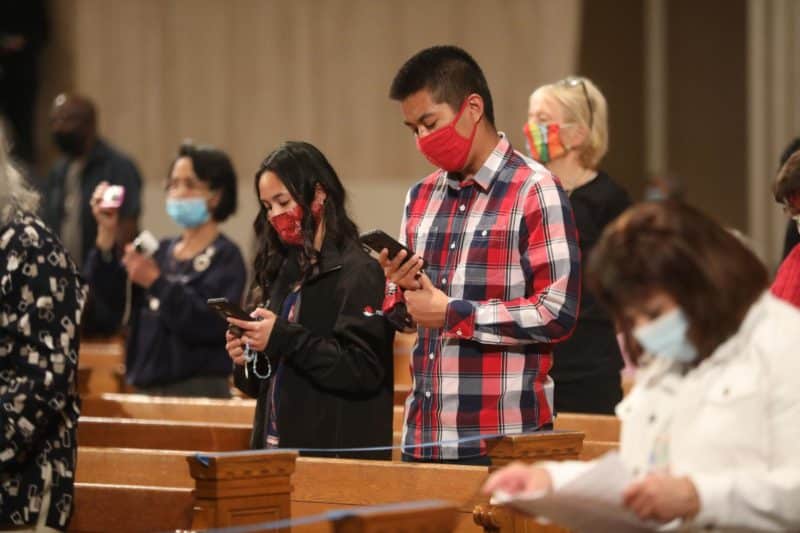The shifts of emphasis since Vatican II that have come down into parish life, particularly with the sacraments and Mass, have provided a more engaging presence with God in Jesus.
However, the most critical shift is the appreciation and understanding of God’s calling for us lay people. “They are the Church – co-responsible with bishops, priests, and religious for Christ’s mission on earth” states an introductory observation prefacing Apostolicam Actuositatem (the decree on the laity).
We are the People of God, it stated. Because of the first sacrament of initiation, all of us stand on the same baptismal platform. Different but equal in the same priesthood of Jesus.
After his election, Pope Francis couldn’t have demonstrated this point better. When introduced to the world on the Vatican balcony in 2013, he asked the people to bless him. Other Popes have blessed the people!
During the debate that eventually formed the document called Apostolicam Actuositatem, a lay person noted that we lay people have existed since Jesus was in Jerusalem. “Been on the back-burner,” he said “until this decree on the laity, when it was shoved onto the front burner and came to the point of boiling.” That was back in 1964,
Those lay people, like us today, lived ordinary lives, yet were called to move into ministries to build the infant Church. Paul (Acts 18:3) was a tradesman and Lydia (Acts 16:14) an astute business woman. Both were called to evangelisation. Peter (John 1:44), involved in the fishing industry, was called to lead. The nameless Samaritan woman (John 4:29) who had no problems cross-examining Jesus, went on to evangelise.
Baptism into the Christian mystery of Redemption is not for oneself, or one culture. It’s for all. Our mission is to recognise those around us who may be searching for Jesus died, Jesus risen and Jesus with us. We are, by obligation of baptism, missionary disciples.
The Vatican Council is pointing us towards, and God’s Holy Spirit is calling us to, reshape the Church.
Could the circumstances we face today, with more parishes than priests, be the situation that could truly realise the original intention of the council six decades ago. The ordained and non-ordained working beside each other in a joint relationship of co-responsibility in a shared leadership model, bringing to reality the place of the laity?
Pope Benedict told the International Forum of Catholic action in August 2012: “Co-responsibility demands a change in mindset, especially concerning the role of lay people in the Church. They should not be regarded as ‘collaborators’ of the clergy, but, rather, as people who are really ‘co-responsible’ for the Church’s being and acting. It is therefore important that a mature and committed laity be consolidated, which can make its own specific contribution to the ecclesial mission with respect for the ministries and tasks that each one has in the life of the Church and always in cordial communion with the bishops.”
Over recent years, the non-ordained have assumed greater responsibilities in education, administration and sacramental programmes. It will be the area of lay leadership that will need to break new ground with a genuine commitment from the ordained and non-ordained to just leadership, engaging ecumenically, advocating for those considered to be of little account, ensuring that language is inclusive, assimilation of immigrant spiritualities, guaranteeing personal safety, supporting those involved in social justice issues, and accompanying anyone seeking full integration into parish life, all of which calls for the mature use of our spiritual gifts.
We just can’t wait to see what happens. There is a sense of urgency to step up the dialogue, to begin to visualise, deliberate and strategise. This is everyone’s business. We need to begin now to identify our leaders, to form them to preside over liturgies, to baptise, to lead funeral services and facilitate marriages.
We need to look around now to recognise those amongst us, who have the gift of leadership. Maybe it’s the parent whose youngster gets grizzly, the parishioner who is obviously moved by the Sunday readings, or the one who sits in the same back row, Sunday after Sunday.
- Sue Seconi is a parishioner of The Catholic Parish of Whanganui – Te Parihi Katorika Ki Whanganui

Reader Interactions